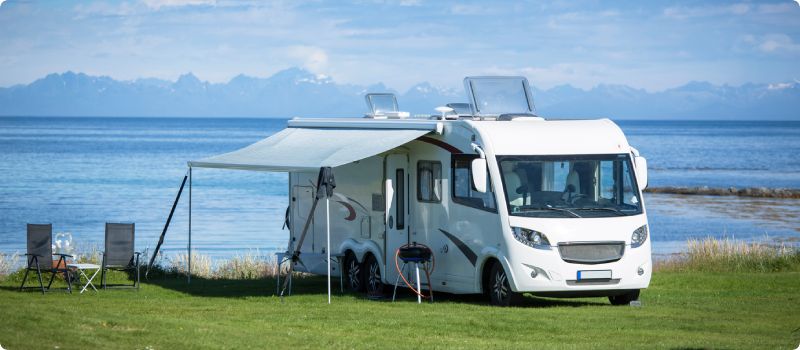6 things to know before buying an RV
Updated May 3, 2024 . AmFam Team
Dreaming of hitting the open road with your family in tow? There’s no better way to experience everything Mother Nature has to offer without sacrificing the convenience of home than by traveling via RV. But before you take the plunge in buying an RV for the first time, it’s important to do some research so you’re confident while you make your purchase.
These six tips can help get you started on your RV-buying journey:
Make sure the RV lifestyle is for you
There’s nothing worse than making a purchase and regretting it — especially when it’s a big purchase. Combat buyer’s remorse by thinking long and hard about whether or not an RV would fit your lifestyle — and whether or not you have the time to use it.
Assess the hidden costs of owning an RV
Just like owning a car, an RV requires periodic maintenance to keep things running smoothly. Depending on where you park it, both in-season and in the off-season, there will be costs for campgrounds, RV parks and off-site storage locations.
There are also the costs of fuel and insurance to consider. You’ll need to buy a travel trailer if you’re towing your RV, and you may need to consider buying a new vehicle that can handle towing it. Lastly, you’ll have to keep in mind costs on the road — meals, travel, plus perks like internet, satellite TV and streaming services.
Choose an RV type that suits your needs
There are a handful of different types of RVs — from pop-up campers to campers that fit in the bed of a truck to fully equipped class-A motorhomes. Take stock of your budget, the amount of space you’ll need and the type of usability you prefer before taking the plunge.

Decide whether to buy new or used
Whether you buy a brand-new RV, or a used RV is totally up to the buyer. While buying a new RV typically means fewer initial maintenance issues and a warranty from the manufacturer, the downside is that the value tends to depreciate quicker than a car’s. On the flip side, buying used can net a good deal and save you a ton of money, but they also can bring higher maintenance costs.
Buy from trusted RV dealers
RV dealers and RV shows are some of the best places to buy an RV, since they are run by people who know the business and are fully equipped to answer your questions. If you know the brand you’d like, you can also contact manufacturers directly. Lastly, there are also some great buying and selling resources online like eBay, Camping World and RV-selling websites like RV Trader (Opens in a new tab) to help you find your perfect rig.
Know what you’re looking for
The best time to buy an RV is when you know exactly what you're looking for. Take a close look at each RV’s fuel economy, floorplan, and livability, and make sure it fits both in your budget and lifestyle. It’s also smart to make a list of all the amenities you’ll need — storage, beds and appliances, etc. — that way you’ll know all your needs are covered.
Now that you know what to look for, you can start the exciting process of finding the perfect RV for you and your family. And when you’re ready to discuss insurance for your RV, connect with your American Family Insurance agent. They can help walk you through the ins and outs of RV coverage to make sure you have the right coverage to protect what matters most.
This article is for informational purposes only and based on information that is widely available. We do not make any guarantees or promise any results based on this information. We are not responsible for the content of any third-party sites that may be linked in this article.

